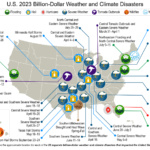Many cities and states have put a moratorium on evicting tenants who are struggling to pay rent due to job loss during the COVID-19 pandemic. So, what can property managers do to secure their business if they’re suddenly losing income because of missed rental payments? At a meeting Wednesday of NAR’s Single-Family Investment Management Committee during the virtual 2020 REALTORS® Legislative Meetings, members developed some safeguard ideas.
- Figure out which of your team members is “essential.” Emergency maintenance, rent collection, lease approvals and renewals, and move-ins and move-outs are the most important functions you need to support right now. You may consider downsizing your team and temporarily eliminating staff positions that don’t fulfill these tasks. So, for example, think about whether you can live without an office administrator for the time being. You also might outsource certain responsibilities that don’t require a full- or part-time salaried worker.
- Streamline certain business functions. Technology can enable prospective tenants to go on self-guided showings of available units, mitigating the need for a leasing agent or other team member to conduct in-person walkthroughs. Likewise, tenants who are moving out can conduct their own walkthroughs and report maintenance items back to you before the unit goes on the market. You can also collect rent payments online, avoiding the need for a person to collect paper checks.
- Choose team leaders to keep everyone on track. This trying time is presenting new and unusual business challenges, so you may want to establish point people on your team to keep thinks running smoothly. Consider naming a “people champion” who works with team members to suss out their roles and responsibilities, a “process champion” who’s in charge of collecting and reporting business data, and a “technology champion” who maintains and troubleshoots the necessary systems for remote work. Establish regular check-ins with these folks to discuss team accomplishments, challenges, and upcoming work agendas.
- Create a payment plan for struggling tenants. Ask tenants to sign a form outlining the terms of the payment plan. This will provide you with a legal document you can hold them to. Once things return to “normal” and eviction moratoriums are lifted, you can use this document to order a plan to collect payments or to evict tenants if they don’t fulfill the payment plan. Such a plan, for example, may require tenants to show financial hardship in order to qualify, and it may ask tenants to continue paying 70% of the monthly rent payments if they are receiving unemployment compensation.
- Open a separate account for stimulus funds. If you’re receiving a Paycheck Protection Program loan or Economic Injury Disaster Loan funds, put them into a separate account so you can easily track how you’re spending the money. The committee noted that the Small Business Administration is likely to audit how loans of more than $2 million are spent.
Source: magazine.realtor












